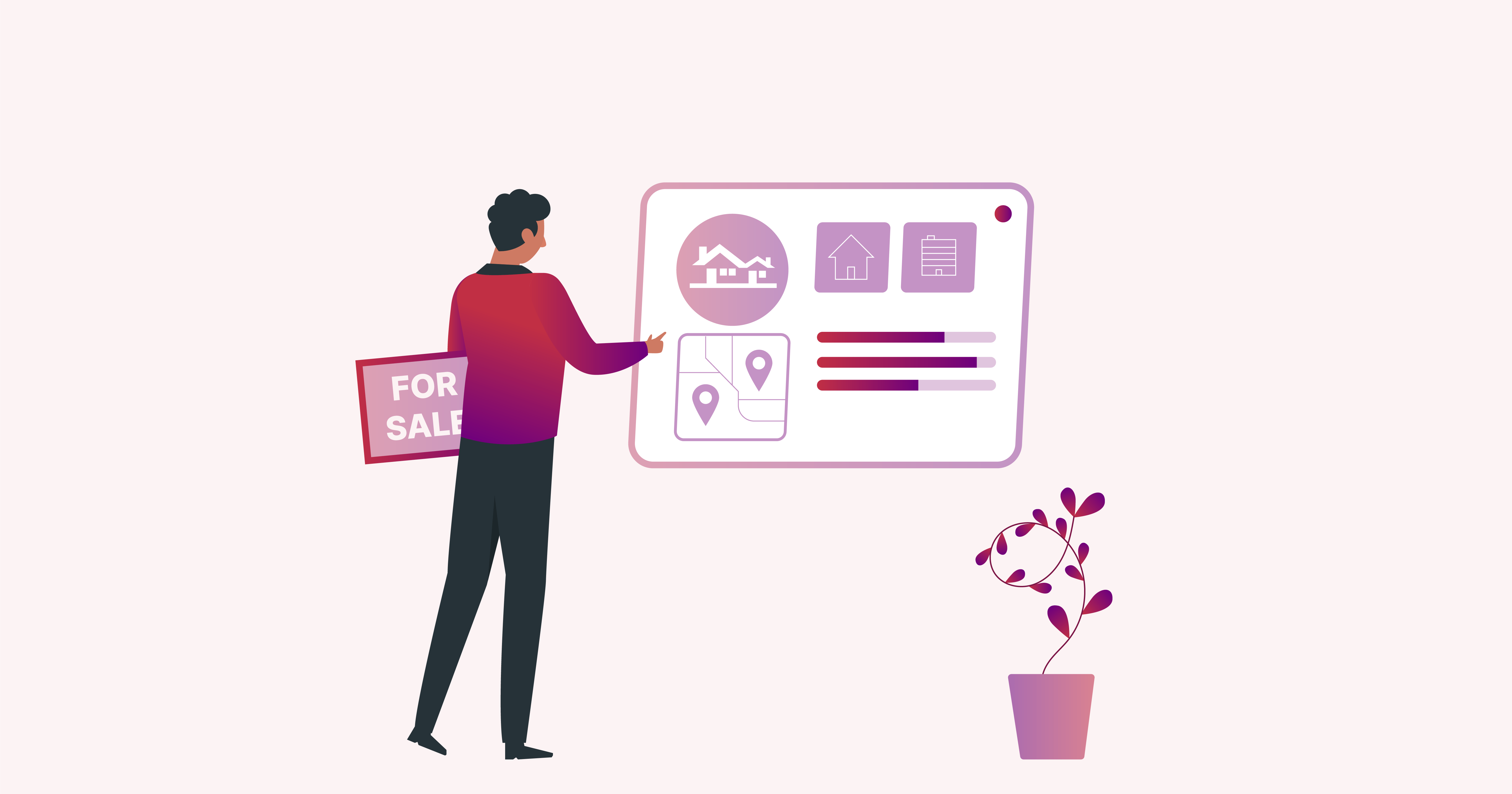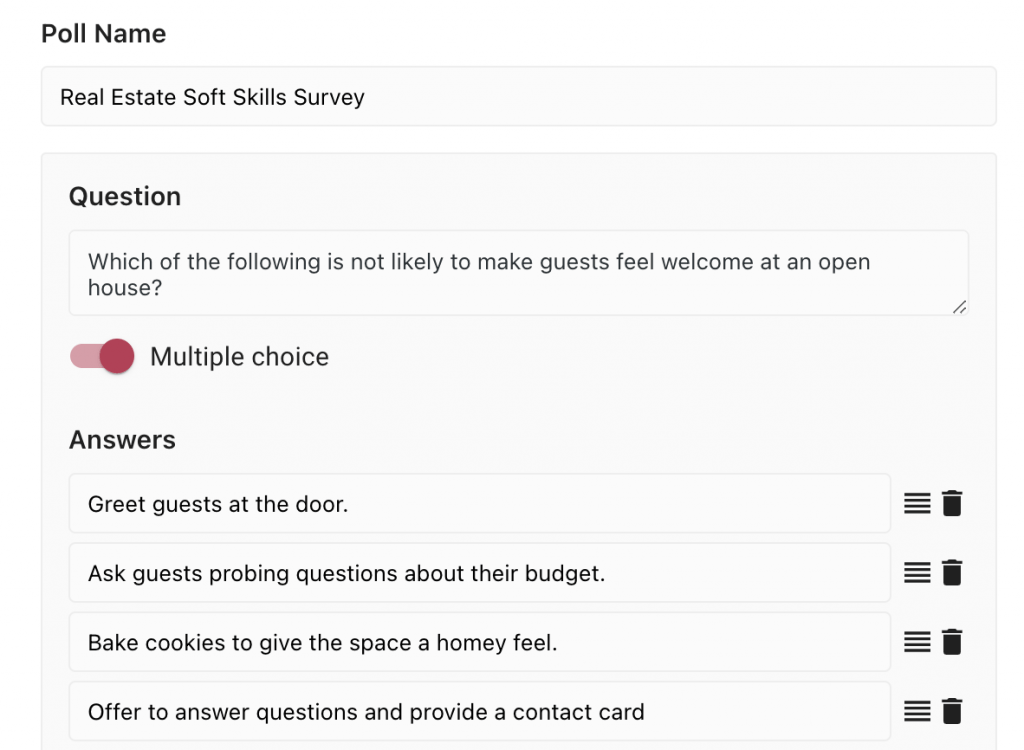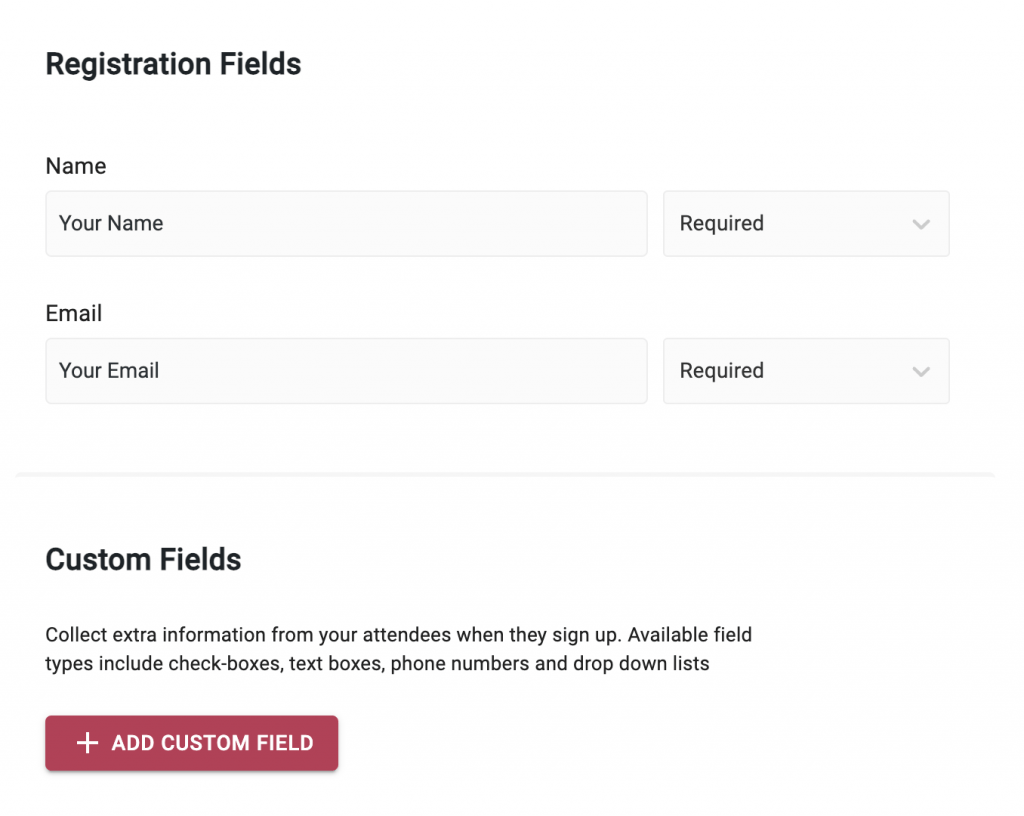Real estate professionals often overlook the potential of digital marketing, assuming that a website, property listings, and ads are enough. But in a competitive market with spoiled audiences, it takes more than that.
To establish expertise and build trust, agents, and brokers turn to platforms like TikTok, Instagram, and YouTube, but many overlook the power of webinars.
In this article, we’ll go through how useful real estate webinars can be along with three different real-estate topics and advice on making the most of each idea using tools available in the WebinarPress plugin.
Benefits of webinars for real estate businesses
Webinars offer a unique opportunity to connect with your target audience and share expertise.
With the right strategy and topics, you can connect with potential buyers and sellers, foster collaboration, and see impressive conversion rates. But the benefits don’t stop there.
Webinars:
- Provide interactive learning experiences closely resembling in-person meetings and real-time communication.
- Allow buyers to see and connect with you on a personal level, forming stronger bonds.
- Generate passive income through courses, eBooks, or other original materials.
- Make content repurposing easier across platforms; for example, using webinar scripts for blogs and video snippets for social media posts.
- Having a niche nature means lower competition, making search engine ranking easier.
To succeed with webinars, however, you first need gripping topics relevant to your audience and your business: topics that capture their attention from start to finish. Let’s take a look!
Top 6 real estate webinar topics
Topic 1: Transitioning from residential to commercial real estate
This topic allows you to share your experience and expertise in your industry’s domain. Position yourself and your brand as an authority by proving that you have the knowledge and experience to help your audience thrive in the commercial real estate market.
There are several reasons real estate agents might decide to shift their focus from residential to commercial real estate. For example, there’s a potential for far bigger sales.
Commercial real estate transactions tend to be at a far higher price point than residential, meaning agents get a bigger commission out of the sale. Moreover, commercial real estate puts you in the position to create lucrative long-term relationships with commercial buyers and sellers.
These buyers and sellers might be interested in the risk/reward ratio of commercial real estate vs. residential real estate, start-up cost, zoning law differences, how to get commercial clients with their current network, and how to get new commercial leads as a former agent or broker.
The value of this particular topic is that it hinges on a unique experience: Transitioning from one real estate specialty to another. When creating your own real estate topic, look for unique experiences to guide and differentiate your content from other experts online. For inspiration, ask yourself:
- What experience do you bring to the table that most people don’t have?
- What roles have you excelled in?
- Have you made any process innovations? Discovered particularly effective sales techniques?
- Do you know any specific regional advice, such as local culture or insight into local school systems?
If you’re still having trouble identifying a niche you can use as a topic starting point, consider asking trusted peers or mentors in your network for advice on what kind of topics best suit your unique experience. Often, an outside perspective can help you better see the unique bits of your own history.
Topic 2: Fostering professional relationships
A webinar on fostering professional relationships is an evergreen topic for real estate agents. Real estate work largely hinges on interacting with people –sellers, buyers, other agents, inspectors, contractors, and more. Solid professional relationships can be the difference between a realtor who gets referrals and one who doesn’t.
Soft skills like a positive attitude, presentation, empathy, compassion, and connection are non-negotiable in real estate because they directly impact conversion rates. However, many agents struggle with nailing these skills, and are in search of someone who can help them bridge the gap.
This webinar topic allows you to do just that. For example, you could share experiences on how soft skills have either made or broken a transaction. You could also host a panel discussion about the relevance of fostering professional relationships.
If you have a knack for working with people, consider running webinars designed to teach others the same skills or collaborating with experts. In addition to sharing your expertise, this would also make for an excellent conversion tool to funnel users toward virtual or in-person networking events.
Topic 3: Preparing your home for sale
This webinar topic is slightly different from the other two, as it’s designed to target potential clients, not other agents. However, thought leadership still has plenty of benefits in a B2C context.
Imagine a seller or buyer looking for great agents coming across your webinar’s landing page. Your topics and how you deliver them might differentiate you from your peers and be why they move further down the webinar funnel.
They can also understand your personality and build a connection before even laying their eyes on you. Follow the tips above for making your webinars interactive, like allowing them to ask questions. You might reduce the conversion friction because you can learn more about them, their pain points, and how to solve them.
In this topic, briefly cover and share expertise on:
- Selling with and without moving first.
- Staging your home for sale.
- Packing and moving while managing a sale.
- Legal considerations of selling.
This is a great subject for including visuals of homes appropriately prepared for sale. Also, where it’s natural in the webinar, emphasize the importance of sellers having a trustworthy real estate agent to guide them. Past projects and testimonials might also work well here.
Topic 4: Learning about real estate regulations
This topic is crucial for real estate agents, investors, and anyone looking to navigate the complexities of property laws effectively. Understanding real estate regulations ensures compliance, mitigates legal risks, and enhances the quality of service provided to clients. Real estate professionals should cover zoning laws, fair housing regulations, environmental policies, and recent changes in property law.
By demystifying these topics, agents can better advise their clients, whether it’s navigating permits for property development or ensuring rental agreements meet legal standards. This knowledge not only positions agents as trusted advisors but also equips them to handle transactions more smoothly, enhancing their reputation and client satisfaction.
Topic 5: How to retain tenants and improve relationships
This webinar aims to target property managers and landlords and explore strategies for tenant retention and relationship building. Happy tenants are the backbone of a successful rental business. Presenters should focus on communication techniques, responsive maintenance practices, and ways to create a community among residents. Discussing the importance of regular check-ins, feedback mechanisms, and tenant appreciation events can offer valuable insights.
Implementing these strategies can lead to higher tenant satisfaction, reduced turnover rates, and a more stable income stream for property owners. Ultimately, fostering positive tenant relationships not only enhances the rental experience but also bolsters the property’s reputation in the market.
Topic 6: Rental-friendly home decor ideas for tenants
Geared towards tenants and interior decorators, this webinar provides creative and reversible decorating ideas that can transform rental spaces without violating lease agreements. It’s an opportunity to discuss the power of removable wallpaper, innovative storage solutions, and damage-free hanging techniques.
Real estate agents can share tips on how tenants can personalize their space in a way that’s stylish and respectful of the property’s limitations. Highlighting examples of successful decor projects can inspire participants and demonstrate the possibilities within their own homes. This topic not only empowers tenants to create more inviting living spaces but also encourages care and respect for the property that benefits both renters and landlords.
Tips for marketing your webinar
Use social media
Social media is one of the best channels to advertise your webinars, and there are several steps you should follow to do this effectively:
- Start by identifying your target audience: Who will benefit most from your webinar? Tailoring your message to this group increases engagement and attendance. Use eye-catching visuals and concise, compelling text to highlight the value of your webinar. Incorporate testimonials or previews, if available, to build anticipation and credibility.
- Schedule posts at times when your audience is most active. Use a mix of live videos, stories, and regular posts across platforms like LinkedIn, Twitter, Instagram, TikTok, and Facebook to maintain interest and remind your followers as the event approaches.
- Engage directly with your audience by answering questions, responding to comments, and encouraging shares. This not only boosts visibility through algorithms but also fosters a community feeling.
- Leverage hashtags related to the webinar topic to extend your reach beyond your current followers. Additionally, consider partnering with influencers or industry experts who can promote your webinar to their followers.
- Track the performance of your social media activities. Analyzing what worked and what didn’t allows you to refine your strategy for future events, ensuring even greater success.
Showcase reviews and testimonials
Include reviews and testimonials in your promotional materials and on your registration page. Once the webinar has run for a while, these could be reviews of the webinar itself.
Before then, you can pull from reviews of your target product or service, or else collect testimonials from clients, peers, and colleagues speaking specifically about your expertise.
Evidence your expertise
Effectively marketing your expertise is almost as important as identifying what you’re an expert in, in the first place. After all, if a tree makes an excellent point in the forest, and no one’s there to hear it, did it even share its knowledge? Fortunately, there are several ways to share your know-how online.
- Include reviews and testimonials in your promotional materials and on your registration page: Once the webinar has run for a while, this could be reviews of the webinar itself. Before then, you can pull from reviews of your target product or service, or else collect testimonials from clients, peers, and colleagues speaking specifically about your expertise.
- Provide evidence of your expertise: Think about what kind of evidence you can use to back up your claim of expertise. To come back to our “Residential to Commercial Real Estate” example, the agent might create a profile of successful sales spanning their history of both, illustrating a successful transition.
- Focus on exuding confidence: Don’t shy away from your expertise or ability. Write confident copy, avoiding the passive voice whenever possible. When on camera, keep good posture and present in an easy, confident manner.
💡Bonus tip: This is easier said than done. Practice public speaking skills to earn more confidence and handle yourself more naturally in webinars.
Incorporate interactive elements
Interpersonal skills, like many soft skills, typically require practice. No matter how comfortable we are socializing in our personal lives, adding professional dynamics into the mix can make things tricky. Because of this, an effective webinar teaching soft skills would need to deliberately build interactivity into their presentation.
There are several simple and effective ways to do this:
- Encourage people to participate in the chat, make comments, and ask questions.
- Create attendee polls to get people thinking critically about the topic.
- Encourage volunteers to run skits with you where you practice particular skills, such as meeting a potential seller.
- Depending on the size of the webinar and the capabilities of your webinar hosting platform, you may be able to break the webinar into small groups to give attendees a chance to practice amongst themselves.
The more you build interactivity into your webinars, the more effective it will be in teaching the topic and furthering your marketing goals.
Following up for success
No matter the webinar topic, it’s important to have a follow-up plan. Be sure to collect email addresses during your registration phase and use them to create follow-up email lists. At a bare minimum, you should be using these lists to thank your audience for attending your webinar. However, you can do so much more with effective follow-up.
For example, while running your webinar, you can take note of the people who ask questions, particularly those whose questions can’t be fully answered over the course of the webinar. Follow up with answers to these questions and pair it with a sales pitch. In the case of the “how to sell your home” example, the pitch would ideally be to hire the host as a seller’s agent.
Remember, personal connection in follow-ups can make or break these messages’ success. Collecting specific and useful information at the registration stage, such as asking about the attendee’s history selling property, can empower you to create personal connections even with those attendees who don’t say much during the webinar.
You can also use post-webinar surveys to gain valuable insights from users, which you can both use for connection and to improve your webinars down the line.
Leveraging webinars for real-estate dominance
Webinars are a spectacular way to boost your career as a real estate agent. They allow you to share niche expertise, foster connections, and pitch yourself and your service to future clients.
Remember that the above topics are just a few of the ways real estate agents might be able to create an effective webinar. When choosing your own topics, focus on the guiding principles behind these examples: Unique experience, interactivity, and building a connection. Think creatively and work your own history into your topic as much as possible to create authority.
WebinarPress is a fantastic tool for making your webinars as effective and engaging as possible. With built-in registration, email integration, in-webinar polls, and more, you can create real estate content that catches attention and builds leads, bringing your real estate career to the next level. Download the WebinarPress plugin and get started today!








